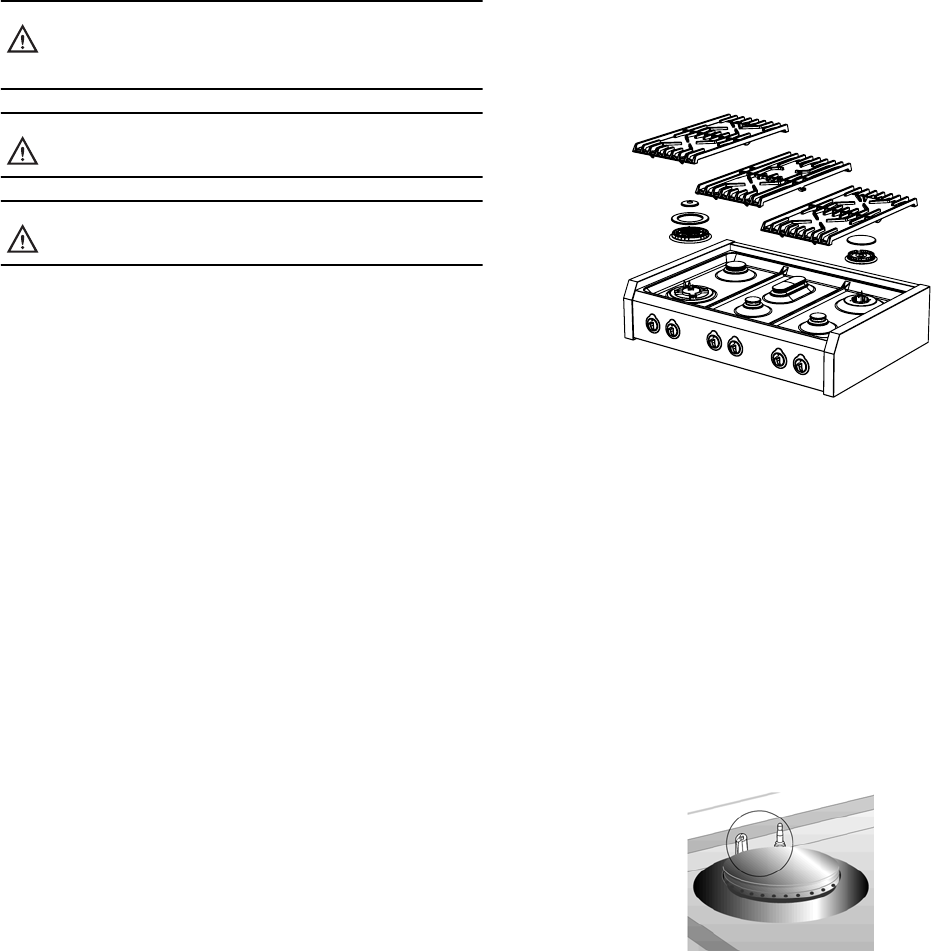
23
Maintenance and Cleaning
Before cleaning or carrying out maintenance,
switch off the power supply to the cooker and
close the gas taps.
Do not clean the surfaces of the cooker when
they are still hot.
Do not use pressure or steam spray guns to
clean the cooker.
Cleaning stainless steel
To clean and preserve stainless steel surfaces and remove
the toughest stains, always use
a specific products; these
products should not contain chlorine- based
abrasives or acid substances, alternatively use a
little warm vinegar.
Pour the product onto a damp cloth and wipe the steel
surface. Rinse carefully and dry with a soft cloth.
Do not under any circumstances use metallic
sponges or sharp scrapers that may damage the
surfaces. Only use non-scratch, non-abrasive sponges and,
if necessary, wooden or plastic utensils.
Cleaning enamelled surfaces
Clean with a non-abrasive sponge dampened
with soap and water. Grease stains can easily be
removed
with hot water or a product specifically made for cleaning
enamel. Rinse carefully and dry with a soft cloth.
Do not use products containing abrasives, scouring
pads, steel wool or acid, which may spoil the
surfaces. Do not leave acid or alkaline substances on the
enamel (lemon juice, vinegar, salt etc.).
Cleaning the control knobs and
control panel
Clean the control knobs and panel with a damp cloth.
Cleaning the pan supports and
burners
To clean the pan supports and hob burners, remove them
from the
ir housing by lifting them upwards (see diagram
above) and soak them in warm soapy water with a mild,
non-abrasive detergent for about ten minutes. Rinse
and dry thoroughly.
Always check that the burner opening and jets are
free of any soiling or impediments.
Be sure to refit the burners correctly, checking the flame is
uniform.
We recommend carrying out this operation at least once a
week and each time as necessary.
Cleaning the igniter plugs and
thermocouples
In order for the igniter plugs and thermocouples to operate
correctly, they must be kept clean at all times. Check them
frequently and, if necessary, clean them with a
damp cloth.
Any dry residue should be removed with a toothpick or
needle, taking care not to damage the insulating
ceramic part.


















